Modern air conditioning units are designed to produce minimal noise. So if your air conditioner is loud—especially its compressor—you know that it's not normal. You might wonder, is there something wrong with my air conditioner? We've done the research for you and here is what we found.
If your air conditioning unit's compressor is making loud noises, then any of the following reasons may have occurred:
- Loose component
- Refrigerant leaking
- High compressor pressure
- Infiltration of dirt
- Fan blades knocking compressor
- Electrical problem
- Some parts covered or slightly loose
Read on to learn the common noises you might hear from your air conditioner's compressor. What causes it? Or maybe you just simply want to tone down your air conditioner's noise.
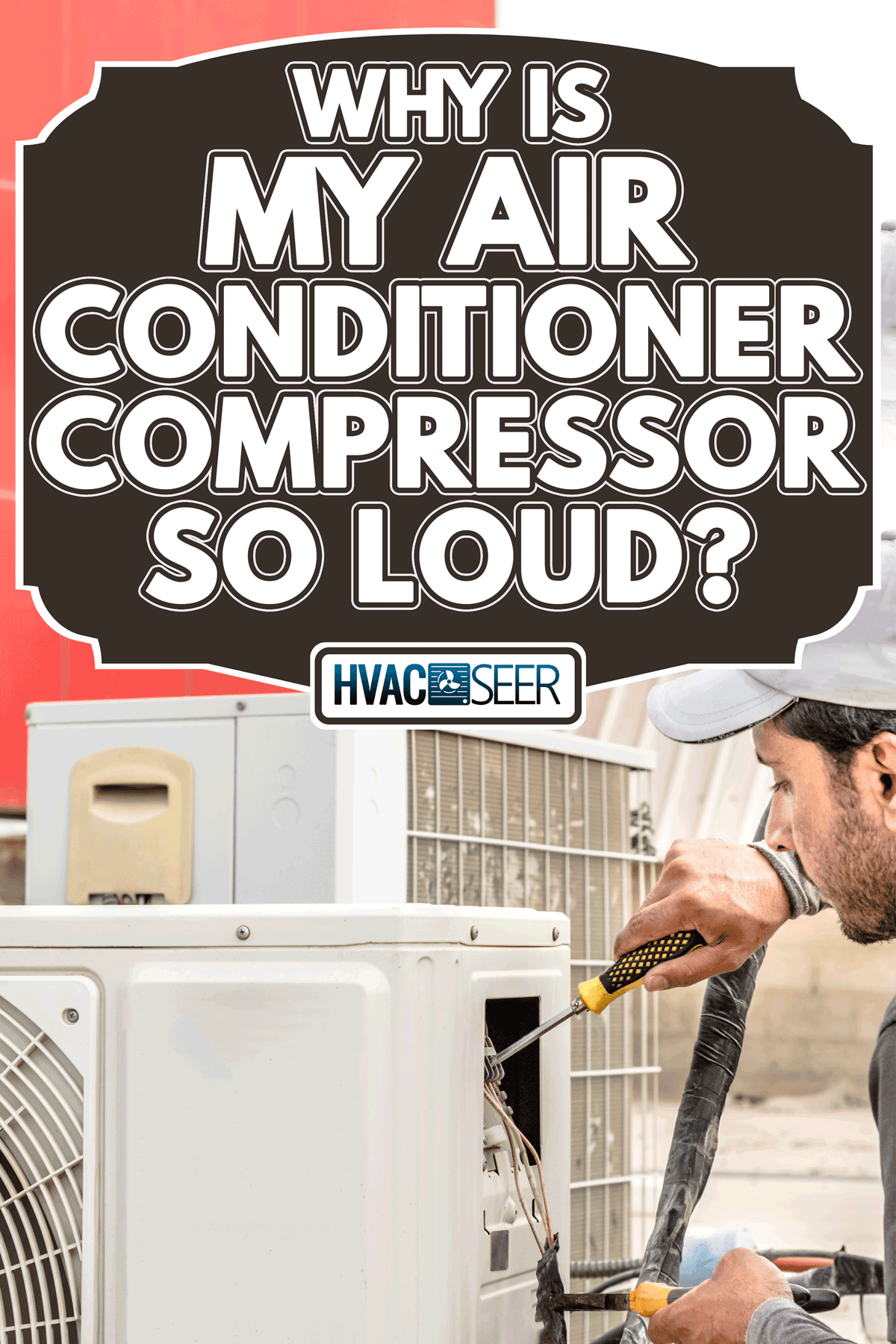
What Is An Air Conditioner Compressor And Its Function?
A compressor serves as the heart of any air conditioning system. It plays a vital role in operating an air conditioner. This part functions to transfer refrigerant to different components of the HVAC system to eliminate excess heat from your home.
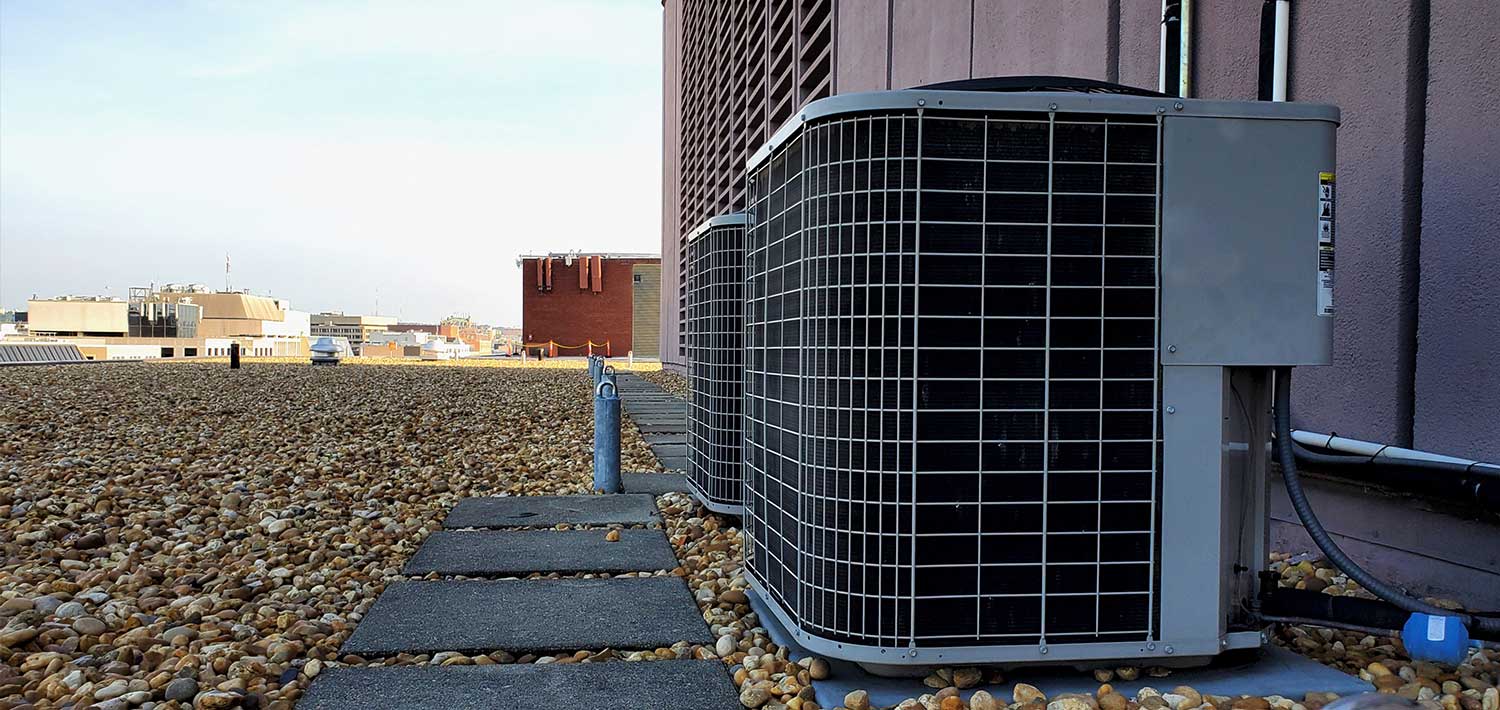
What Are Common Noises A Defective Compressor Produce?
When your air conditioner starts making unusual noises, it only indicates that there is something wrong with it. Here are some common noises you should not ignore:
- Banging Noise
- Screaming Noises
- Clicking Sounds
- Humming Sounds
- Buzzing Noise
What Does A Banging Sound On Compressor Mean?
If you hear this sound, chances are your compressor has some loose parts. These noises especially occur shortly after turning your air conditioner off or on.
How to fix a banging sound
Call an HVAC technician to reattach or tighten any loose components. However, if you're not lucky enough, you might have to replace the entire air conditioner compressor unit.
Remember, you must urgently have your AC compressor repaired to avoid further damage to your system.
What Causes an AC Compressor To Produce Screaming Sounds?
Screaming noises in your AC compressor unit are frequently an indication that there's refrigerant leaking. The compressor screams as it tries to compress the fluid refrigerant inside the evaporator coils, which are full of holes.
But this is not the case all the time. Sometimes, screaming sounds indicate that there is high pressure in your AC compressor.
If you happen to hear this sound from your AC compressor, turn your unit off immediately and call an HVAC professional. The increased internal pressure that generates these types of noises is just too unsafe to keep that machine running, and you will require professional assistance.
What Does Clicking Sound On AC Compressor Indicate?
When you hear this sound, it can mean one of these two possibilities:
- Dirt or other debris has fallen in your AC compressor unit and is interfering with its usual operation.
- Another possibility is that your fan screen is broken and the blades of your fan are bumping against it.
On another note, if the sounds only occur when you turn on your device, you may have an electrical problem on your hands. Although there are other reasons for it to happen, it is best to check with your trusted HVAC professional.
AC Compressor Humming And Buzzing Sound- What Does It Mean?
Usually, humming noises aren't very alarming. Your compressor's cap or another component may be slightly loose. Humming sounds, on the other hand, can indicate that your compressor is running low on oil.
If you hear buzzing noises in your air conditioner compressor, here are some possible reasons for it:
- Loose or missing compressor unit isolation feet
- Contactor relay or relay control switch failure
- Failures of compressor motors
- Failure of fan motors
- Electrical problem
What Are Common AC Compressor Problems You Might Encounter?
It is inevitable to not experience any problems with your air conditioner compressor especially if it is old or just simply because it is not regularly maintained.
Here are some common AC compressor problems you might experience:
- Compressor motor issues
- Electrical problems
- Refrigerant leaks
- Polluted/contaminated compressor
- Cooling problems
- Low lubricant levels
- Suction line failure
Now, let's discuss how these problems can affect your HVAC system.
1. Compressor Motor Issues
The compressor motor can fail for a variety of causes, such as below:
- Lack of lubrication
- Overheating
- Taking in liquid refrigerant
Problems with the motor will result in operational issues, which will damage your AC system.
2. Electrical Problems
Electrical problems, like those that affect other types of equipment, can cause failure to your AC compressor unit. These electrical problems can produce an acid accumulation in the system, which destroys the wiring and causes the system to burn out.
If your system shuts down unexpectedly, it's a sign that something is amiss with the wiring.
Also, in your compressor, there are two main areas where electrical issues might arise.
- Wire. The first is with the wire, which can fray and/or corrode over time, affecting electrical flow and the compressor's operation.
- Capacitor. A capacitor problem is the second typical electrical issue that might arise with your compressor. Your compressor has two capacitors, and faults with one (or both) of them will influence how it works.
3. Refrigerant Leaks
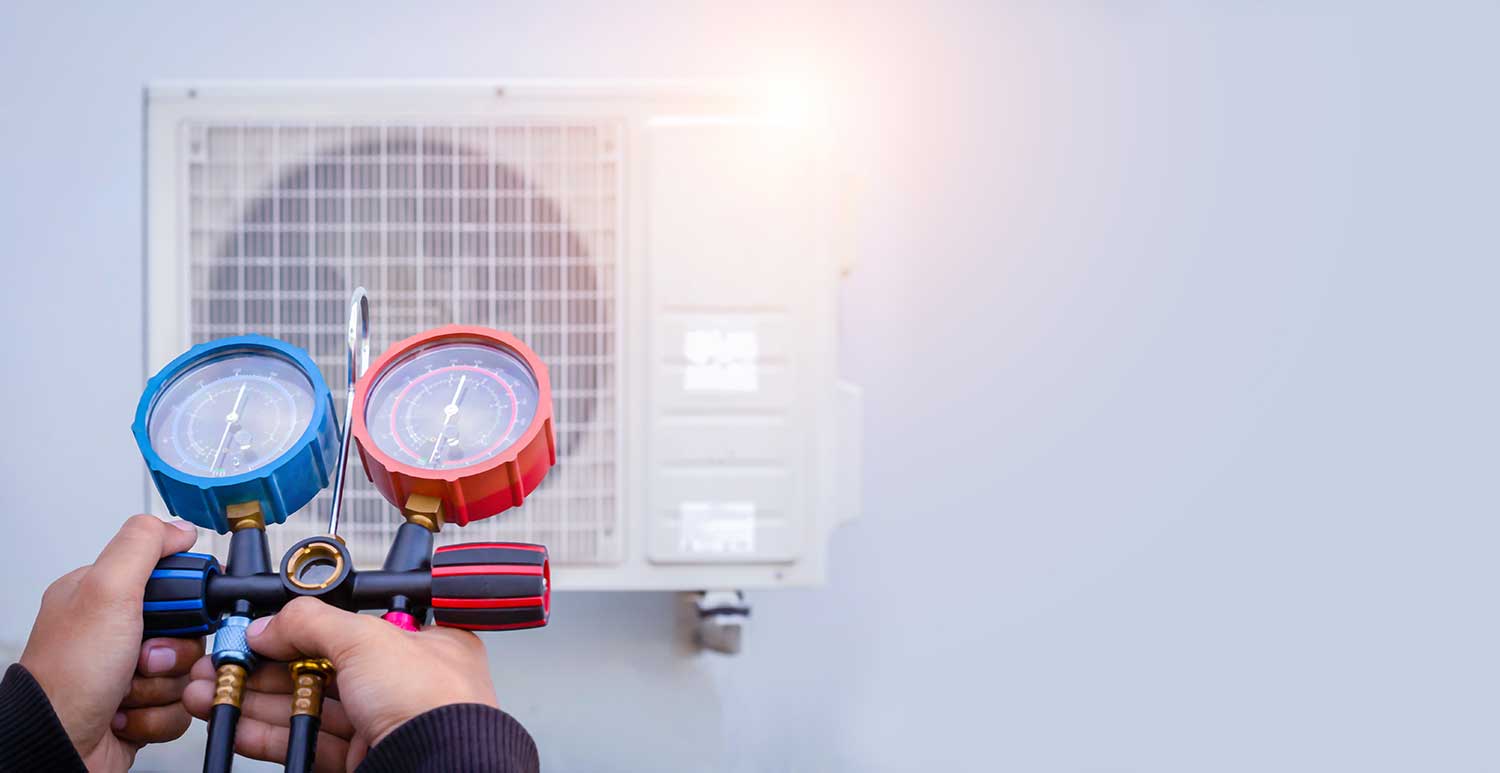
Having a low refrigerant charge indicates an undercharged AC at installation or it leaks.
Remember, your air conditioner's performance and efficiency are best when the refrigerant charge meets the manufacturer's specifications and is neither undercharged nor overcharged.
If you don't take care of this problem right away, it will cause the system to overheat, and your compressor will finally fail. Refrigerant leaks can also be damaging to the environment.
If it leaks, merely adding refrigerant is not a solution. Any leaks should be repaired by a trained technician, who should then test the repair and charge the system with the proper amount of refrigerant.
4. Polluted/Contaminated Compressor
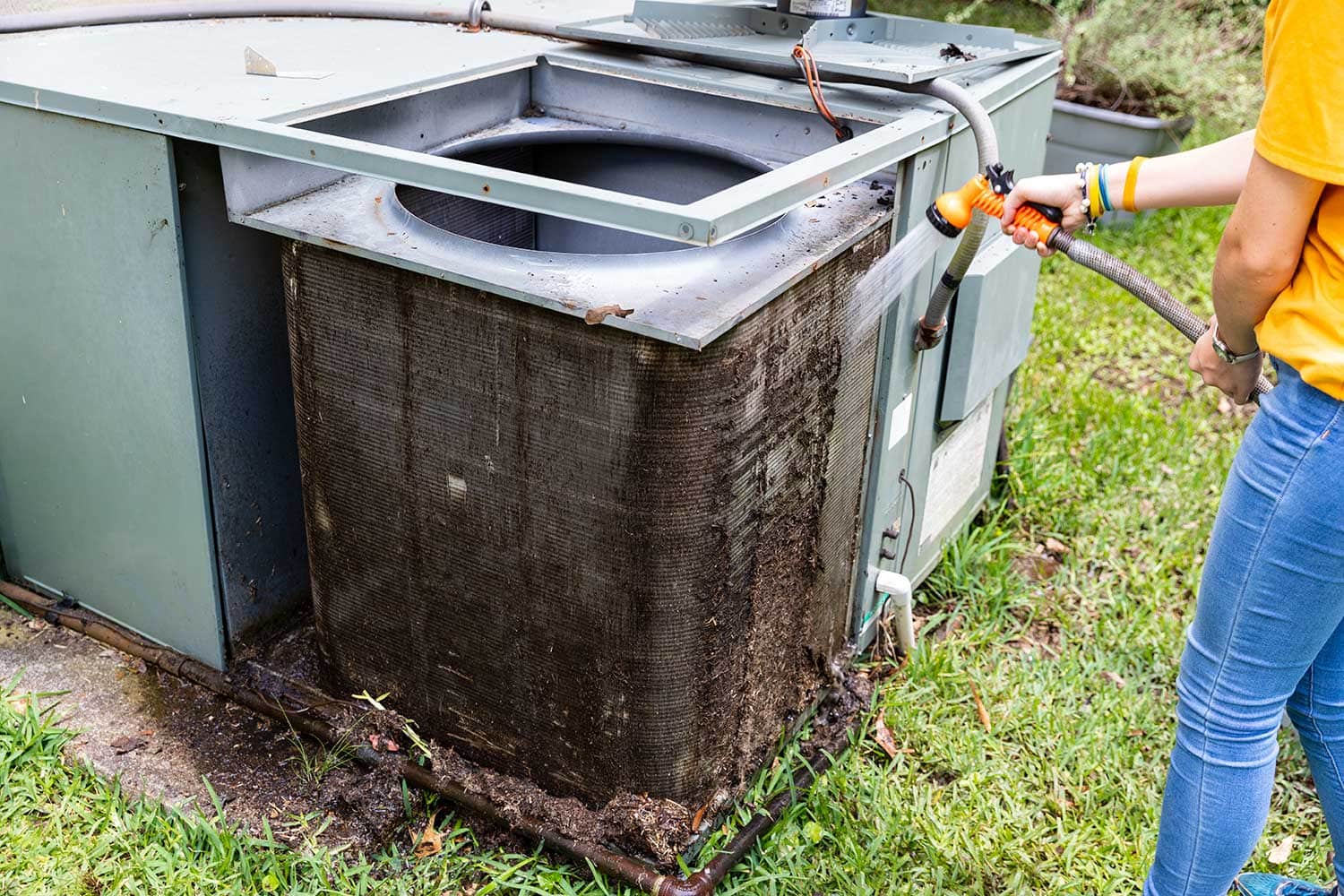
Air conditioning compressors are typically located outside of residences or on rooftops.
Various forms of pollutants, including bacteria, fungi, and insects, are commonly found in their placement regions. The heat in the system provides it an ideal environment for these particles to live.
While operating, some parts of your air conditioning compressor collect dirt, dust, and other debris. Your condensing coil can be one of them.
The collection of dirt slows the ejection of hot air from the coil and pushes your system to work harder to attain your predetermined temperature.
The quantity of heat trapped in the system, as well as the strain it puts on the system to work hard, causes the compressor to overheat.
5. Cooling Problems
One of the most prevalent issues with air conditioners is that their cooling power diminishes with time. Of course, this can happen as your unit ages, but it's also possible that the problem stems from a failure to maintain proper compressor pressure.
A problem with the AC compressor is indicated by abnormally high and low output pressure.
When it comes to defective cooling, it usually happens when the compressor runs slowly or when no air comes out even when it is turned on. This indicates that the compressor is loose or worn out.
6. Low Lubricant Levels
The lubricant is the blood of your air conditioning system, just as the compressor is its heart. Insufficient lubricant levels can result in a variety of catastrophic problems, including compressor failure.
7. Suction Line Failure
The refrigerant lines in your AC system acquire fractures and holes over time. They obstruct the flow of refrigerant, forcing your system to work harder. The decrease in your system's cooling capacity is the most obvious sign of this problem.
Low cooling requires the system to run for extended periods, resulting in increased energy consumption and component wear and tear. It also reduces the efficiency of your system's operation.
How To Maintain Air Conditioner Compressor To Avoid Problems
Regularly maintaining your AC unit is important. But, how would you do this? Here are some tips you can follow:
- Regularly clean your compressor coils.
- Keep your AC well lubricated.
- Prevent contamination.
- Clear suction lines.
- Check electrical wirings.
- Check for leaks.
- Only allow qualified HVAC professionals to do the job.
The compressor is an important component of your air conditioning system. Compressor malfunction is bad news because compressors have a lot of moving components and can be costly to repair or replace.
When a compressor breaks down, you may need to replace the entire unit.
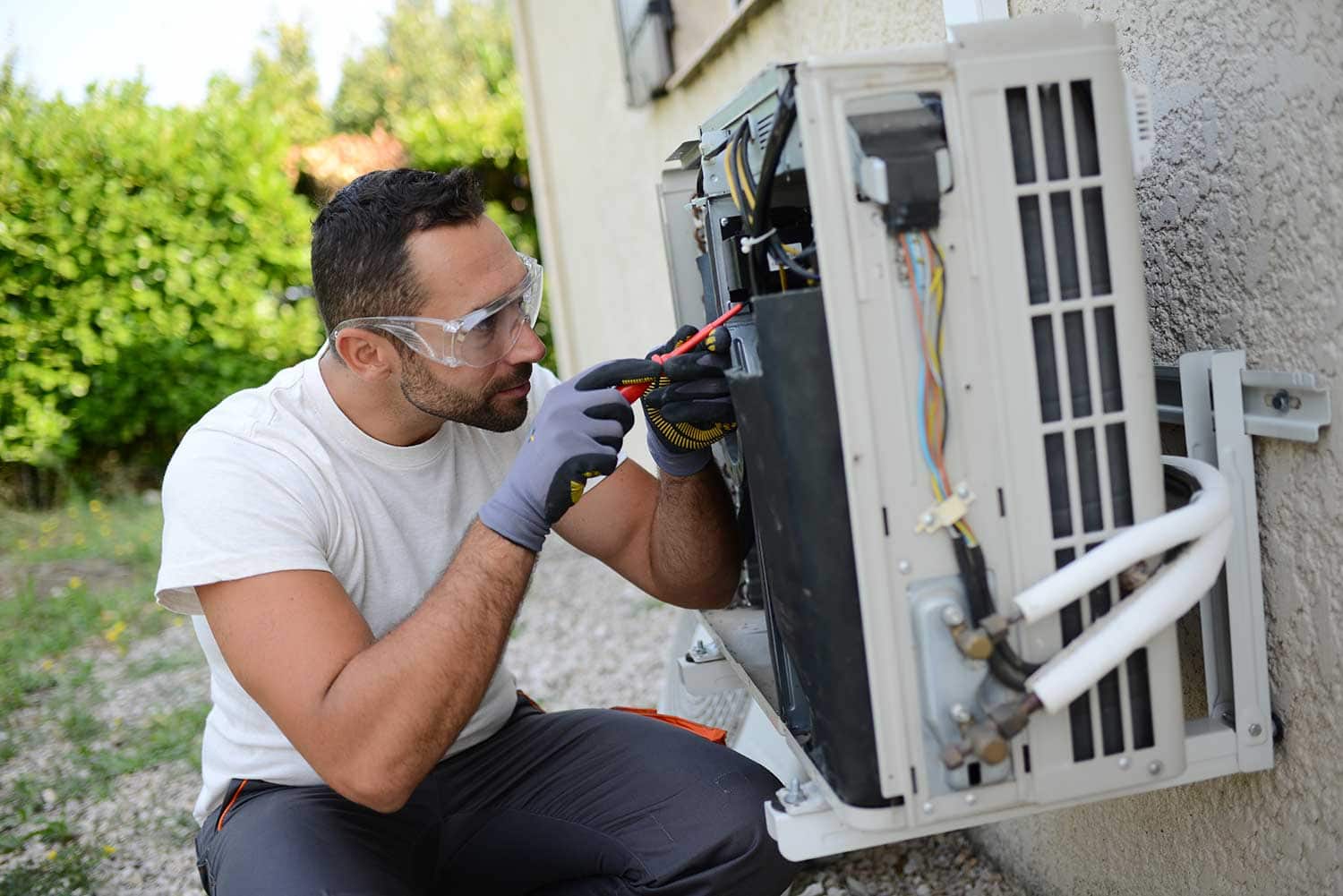
Final Thoughts
When you hear unusual noises from your air conditioner compressor, you must know what the noise indicates. Do not ignore these sounds as they serve as a warning that something is wrong with your AC system.
Then, call for a qualified and trusted HVAC professional to check and repair any problems with your AC compressor.
Check these related articles if you hear noises from any of your HVAC equipment:
